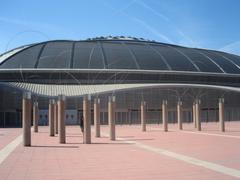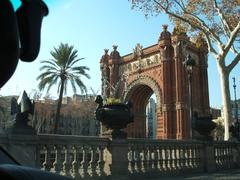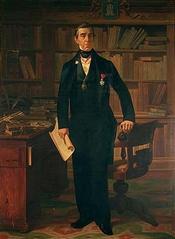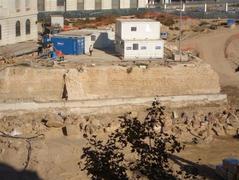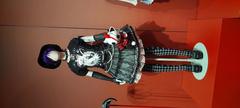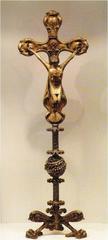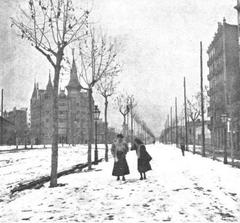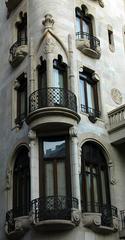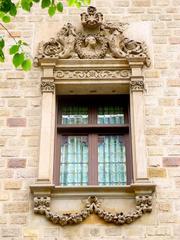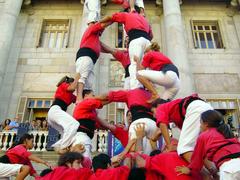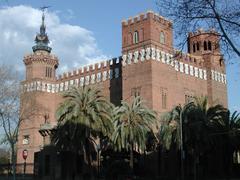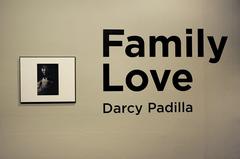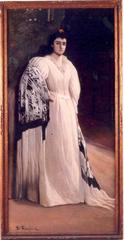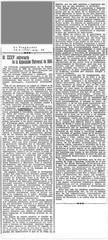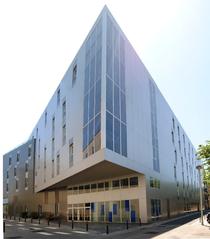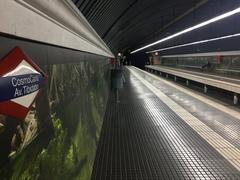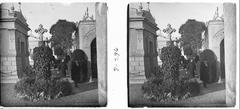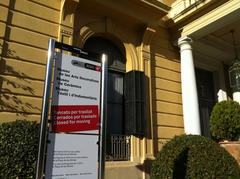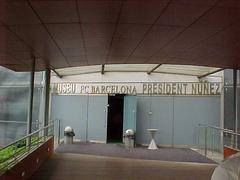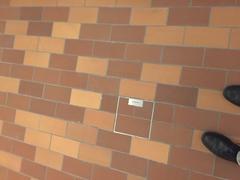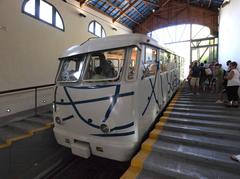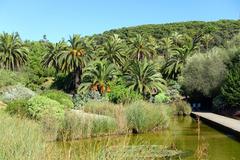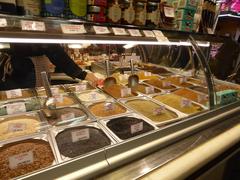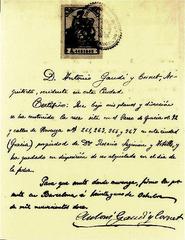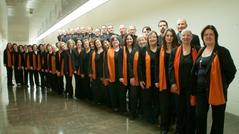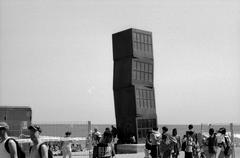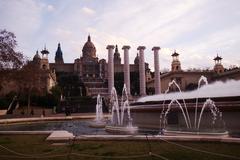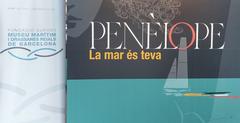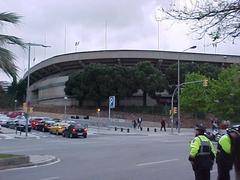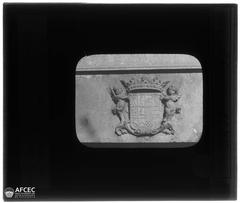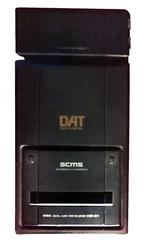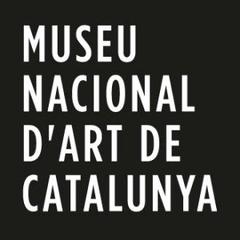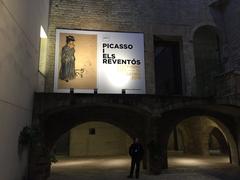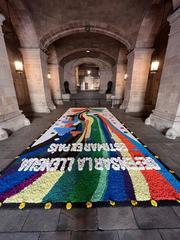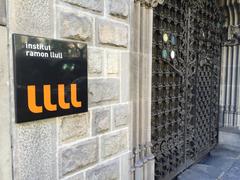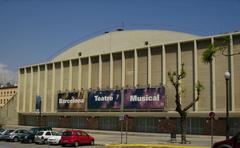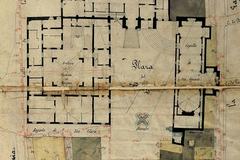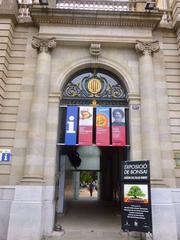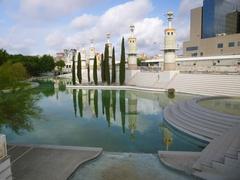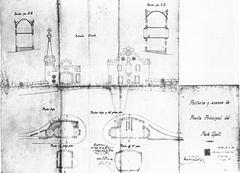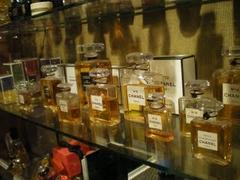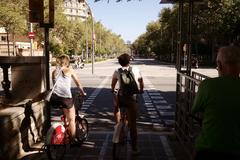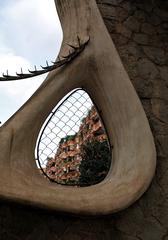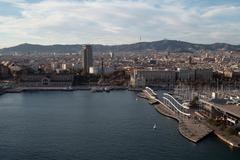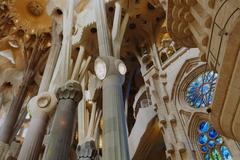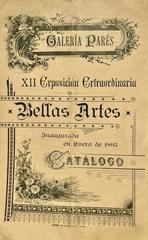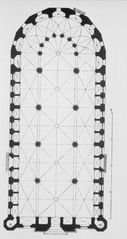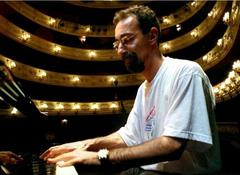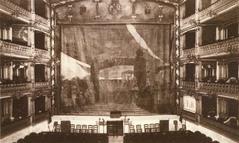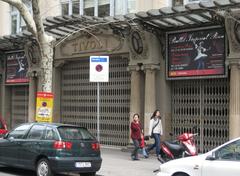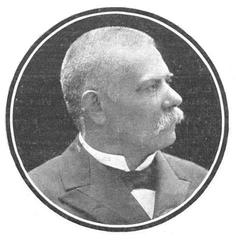
El Molino Barcelona Visiting Hours, Tickets, and Historical Significance: The Definitive Guide
Date: 03/07/2025
Introduction: El Molino’s Place in Barcelona’s Cultural Landscape
El Molino, with its unmistakable red windmill facade on Avinguda del Paral·lel, is not just a theater—it is a living symbol of Barcelona’s ever-evolving cultural identity. Since its inauguration in 1898 as “La Pajarera Catalana,” El Molino has epitomized the city’s blend of tradition, artistic daring, and openness to change. Over 125 years, it has survived wars, dictatorships, urban transformations, and evolving tastes, all while remaining a beacon for live performance and nightlife in the Poble Sec neighborhood (Barcelona Navigator; Architectuul).
This guide offers a detailed look at El Molino’s history, architecture, visitor information (including tickets and hours), accessibility, and its broader impact on Barcelona’s social and cultural fabric. Whether you’re a history buff, a fan of cabaret, or simply seeking a memorable evening in Barcelona, this guide will help you make the most of your visit.
Table of Contents
- Historical Overview
- Architectural Evolution & Urban Context
- Visitor Information: Hours, Tickets, and Accessibility
- Programming & Events
- Cultural and Social Impact
- Nearby Attractions & Travel Tips
- Frequently Asked Questions (FAQ)
- Conclusion & Call to Action
- Sources
Historical Overview
Origins and Early Years (1898–1939)
El Molino opened as “La Pajarera Catalana” in 1898, quickly establishing itself as a lively gathering spot for locals. In 1910, it adopted the name “Petit Moulin Rouge” and unveiled its now-iconic windmill facade—a direct homage to Paris’s Moulin Rouge. Throughout the early 20th century, El Molino flourished as a center for cabaret, music hall, and vaudeville, attracting a cosmopolitan audience and earning a reputation as a hub for artistic innovation (Barcelona Navigator; SHBarcelona).
Franco Era and Name Change (1939–1975)
Following the Spanish Civil War, El Molino was forced to change its name (the word “rouge” was deemed politically subversive) and became simply “El Molino.” Under Francoist censorship, the venue adapted by using humor, double entendre, and coded performances to maintain its irreverent spirit. It remained an essential refuge for social commentary, escapism, and coded resistance (La Vanguardia).
Post-Franco Renaissance (1975–2000s)
With Spain’s transition to democracy, El Molino entered a new golden age. The theater became a stronghold of countercultural expression, hosting avant-garde artists, legendary cabaret stars, jazz musicians, and comedians. Its welcoming, inclusive atmosphere made it central to Barcelona’s LGBTQ+ and bohemian scenes, and its glowing windmill became an emblematic feature of the city’s nightlife (Barcelona.cat; TeatreBarcelona).
Decline, Closures, and Revivals (2000s–2020)
Changing entertainment trends, economic challenges, and urban redevelopment led to intermittent closures. A major restoration in the early 2010s modernized the venue while preserving its historic character, and El Molino diversified its programming to include jazz, comedy, burlesque, and private events. Since 2010, it has also hosted the renowned Barcelona Burlesque Festival (SHBarcelona; Taquilla.com). However, the COVID-19 pandemic in 2020 forced another closure (La Vanguardia).
Municipal Acquisition and the “Seventh Life” (2021–Present)
Recognizing its cultural value, the Barcelona City Council purchased El Molino in 2021, integrating it into the city’s public cultural network (Barcelona.cat). Its reopening in 2024 marked a new era: El Molino is now a multi-purpose cultural hub, blending its cabaret roots with jazz, flamenco, singer-songwriter concerts, and comedy, all within state-of-the-art facilities (El Nacional; El Molino Official).
Architectural Evolution & Urban Context
El Molino’s windmill-shaped facade, inspired by Paris’s Moulin Rouge, has become a city landmark. Over the decades, the building has undergone several renovations, each adding layers to its architectural identity (Architectuul). The 2010 restoration introduced a modern volume above the historic structure, framing the original facade and enhancing its visibility on Paral·lel Avenue.
Situated at Carrer de Vila i Vilà 99, the venue anchors the lower end of Paral·lel, historically known as Barcelona’s “Broadway” for its theaters and nightlife (Meet Barcelona). The illuminated windmill serves as a beacon for both locals and visitors, signaling the area’s ongoing cultural vitality.
Inside, El Molino spans approximately 1,500 square feet across three levels, with two amphitheaters and flexible spaces for performances and events (Bandsintown). The latest technical upgrades include immersive sound and lighting systems, ensuring world-class acoustics and visual effects (Solid State Logic).
Visitor Information: Hours, Tickets, and Accessibility
Visiting Hours
- Shows: Typically Tuesday to Saturday evenings, starting between 8:00 PM and 10:30 PM depending on programming.
- Doors: Open 30–60 minutes before showtime.
- Box Office: Open on event evenings; online booking is highly recommended for best availability.
Check the official calendar for up-to-date showtimes and special events.
Tickets and Pricing
- Prices: Generally €20–€50, depending on the event and seat selection.
- Where to Buy: Purchase via the official website or trusted ticket vendors such as Tomaticket.
- Advance Booking: Strongly advised, especially during festivals or peak seasons.
Getting There
- Address: Carrer de Vila i Vilà, 99, Sants-Montjuïc, Barcelona.
- Metro: Paral·lel (Lines L2 & L3) or Poble Sec (L3).
- Bus: Lines 55, 59, and others.
- Walking: 10–15 minutes from Plaça Espanya or the city center.
- Parking: Public lots nearby, but public transport is recommended due to limited space.
Accessibility
- Wheelchair Access: Yes, including step-free entrances, ramps, and accessible restrooms.
- Seating: Reserved areas for guests with mobility needs.
- Assistance: Contact the venue ahead for specific accommodations.
Programming & Events
El Molino’s programming is eclectic, featuring cabaret, jazz, flamenco, comedy, burlesque, and special events. Recent and upcoming highlights include:
- Robin McKelle (Soul/Jazz): July 4, 2025
- El Numeret: Bingo Show: July 4, 2025
- Llombart, Mengual & Arnedo Jazz Trio: July 6, 2025
- Cruïlla Tardor Series: October–November 2025
- Folk with Micah P. Hinson: November 28, 2025
For full listings and updates, visit the official website.
Food & Drink: El Molino features a Mediterranean kitchen and full bar, offering tapas and cocktails. Reservations for dining are recommended on busy nights.
Cultural and Social Impact
Economic Revitalization & Urban Development
El Molino’s revival has been a catalyst for economic regeneration in the Paral·lel district. It attracts thousands of visitors annually, supporting local businesses and nightlife (Spain Tourist Information). However, this growth also brings challenges such as gentrification and rising living costs (Emerald Insight).
Social Cohesion & Community
Beyond entertainment, El Molino fosters social inclusion through community events, collaborations with local artists, and education initiatives. This engagement strengthens neighborhood bonds but also raises questions about balancing tourism with local needs (Turispanish).
Evolution of Social Norms
El Molino has long championed artistic experimentation, gender diversity, and LGBTQ+ visibility. Its cabaret and burlesque shows challenge norms and provide a platform for marginalized voices, helping to shift social attitudes in Barcelona (Barcelona Tourist Guide).
Preservation & Responsible Tourism
The venue’s restoration showcases Barcelona’s commitment to adaptive reuse and cultural heritage. El Molino promotes responsible tourism by encouraging respectful visitor behavior and supporting local communities (Architectuul; Turispanish).
Nearby Attractions & Travel Tips
- Avinguda del Paral·lel: Theaters, bars, restaurants, and vibrant nightlife.
- Montjuïc Hill: Gardens, museums, Olympic facilities, and panoramic views.
- Museu Nacional d’Art de Catalunya (MNAC): Art collections and exhibitions.
- Poble Sec Neighborhood: Tapas bars, street art, and local markets.
- Teatre Apolo & Museu Marítim de Barcelona: Additional cultural sites.
Travel Tips: Use public transport for convenience; arrive early to enjoy the venue’s ambiance and nearby attractions. Dress smart-casual and respect the photography policy (no photos during shows).
Frequently Asked Questions (FAQ)
Q: What are El Molino’s visiting hours?
A: Shows are usually held Tuesday to Saturday evenings, with doors opening 30–60 minutes before. Exact times vary by event—check the official schedule.
Q: How do I buy tickets?
A: Purchase via the official website or authorized sellers like Tomaticket. Early booking is recommended.
Q: Is El Molino accessible?
A: Yes, with step-free access, accessible restrooms, and assistance available.
Q: What types of shows can I expect?
A: A mix of cabaret, jazz, flamenco, comedy, burlesque, and special events.
Q: Are there dining options?
A: Yes, a Mediterranean kitchen and bar are available.
Q: Where can I find more information?
A: Visit the official website or follow El Molino on Instagram and Facebook.
Conclusion & Call to Action
El Molino is more than a venue—it’s a living monument to Barcelona’s spirit of resilience, creativity, and inclusivity. Its blend of historic architecture, cutting-edge technology, and dynamic programming offers a uniquely immersive experience for visitors. Whether you’re seeking entertainment, cultural enrichment, or simply a memorable night out, El Molino delivers.
Plan your visit today:
- Check the El Molino website for shows and tickets.
- Book early for popular events.
- Download the Audiala app for more insider guides and updates.
- Follow El Molino on social media for the latest news and event highlights.
Experience why El Molino remains a beloved fixture in Barcelona’s cultural landscape.
Sources
- Barcelona Navigator – El Molino
- SHBarcelona – Cabaret History
- La Vanguardia – The Seventh Life of El Molino
- Barcelona.cat – Municipal Cultural Space
- Architectuul – Architectural Evolution
- Solid State Logic – Technical Renovations
- El Molino Official Website
- El Nacional – Reopening
- Meet Barcelona
- Bandsintown
- Taquilla.com – Burlesque Festival
- TeatreBarcelona
- Spain Tourist Information
- Emerald Insight
- Turispanish
- Tomaticket
- betevé
- Barcelona Tourist Guide
- Spain Inspired
- Landmarks Architects


